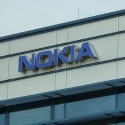German incumbent's push on network core automation is welcome news for the Finnish vendor, bruised by recent declines at its mobile access unit.

Nokia continues to show some resilience in the face of a disconcerting drop in sales at its mobile networks business.
Telekom Deutschland, for an undisclosed fee, has chosen the Finnish vendor as a "long-term strategic partner" to transform its optical core network into a "service-centric platform that can easily scale to meet Industry 4.0 demands."
According to the official statement, Nokia's kit will enable "optimized performance and a consistent customer experience" across Germany. Telekom Deutschland, it adds, hopes to simplify and streamline operational tasks through automation and make more efficient use of network resources.
At the heart of this planned transformation of the optical core network and strategic regional distribution sites – no timeframe was given – are "Nokia WaveFabric" service‑ready platforms and the Nokia WaveSuite software portfolio. The latter includes the Nokia 1830 photonic service switch powered by the PSE-V family of coherent DSPs.
Dr Erik Weiß, VP of optical transport core at Deutsche Telekom Technik, Telekom Deutschland's technology arm, enthusiastically welcomed Nokia on board. He talked about a "highly differentiated" service quality of experience, greater responsiveness to customers' new service needs, and reducing network TCO.
"The Nokia optical transport solution enables us to realize these goals by creating a more scalable and automated services-centric platform that will support us well into the futur," he said.
Automation for the people
As with many other operators, Telekom Deutschland and parent company Deutsche Telekom are increasingly turning their attention to automation as networks become more complex and services trickier to manage.
According to research from Omdia, a sister company to Light Reading, nearly 80% of service providers see the use of AI and analytics, when it comes to the automation of network activities, as an "important" or "very important" IT project for 2021. Nearly 60% of them are planning to increase investment in AI tools.
Want to know more about optical? Check out our dedicated optical channel here on Light Reading.
In fact, among CIOs and CTIOs, automating network and service management processes is considered the most important OSS project over the next 18 months.
Alex Choi, head of strategy & technology innovation at Deutsche Telekom, seems to concur.
Speaking on a recent webinar hosted by the Open Network Foundation, and with an eye on delivering 5G services, Choi emphasized that telcos must have orchestration control across diverse network components, including the RAN, the core and the cloud. "To manage all these elements together," he said, "network automation is the only possible way."
Related posts:
— Ken Wieland, contributing editor, special to Light Reading
Read more about:
EuropeAbout the Author(s)
You May Also Like











